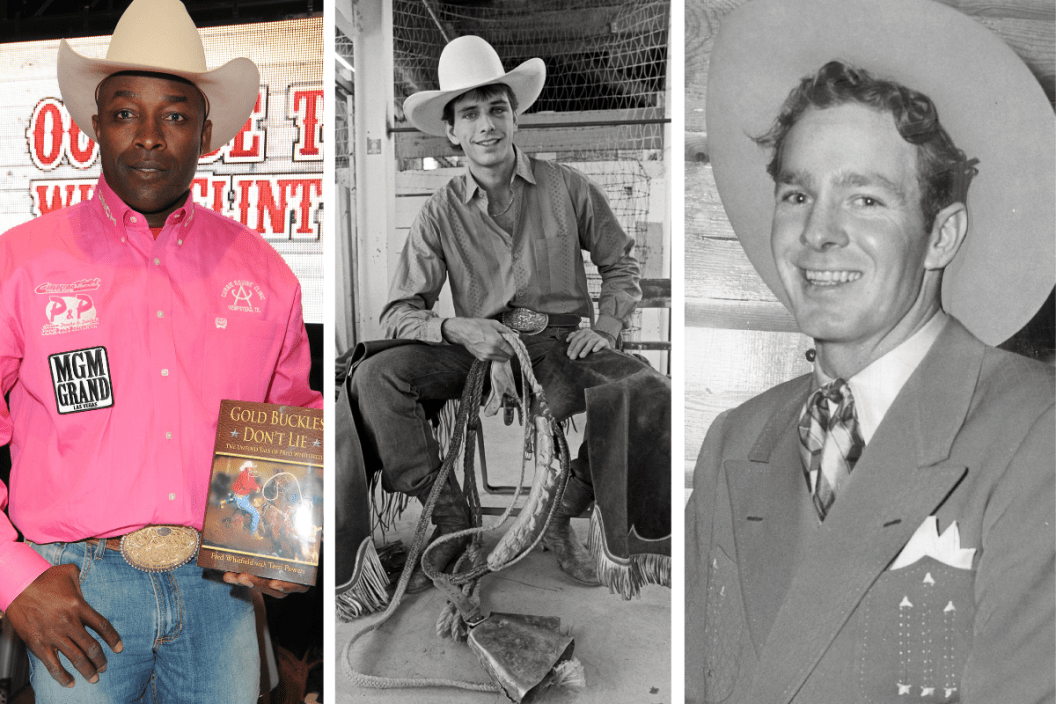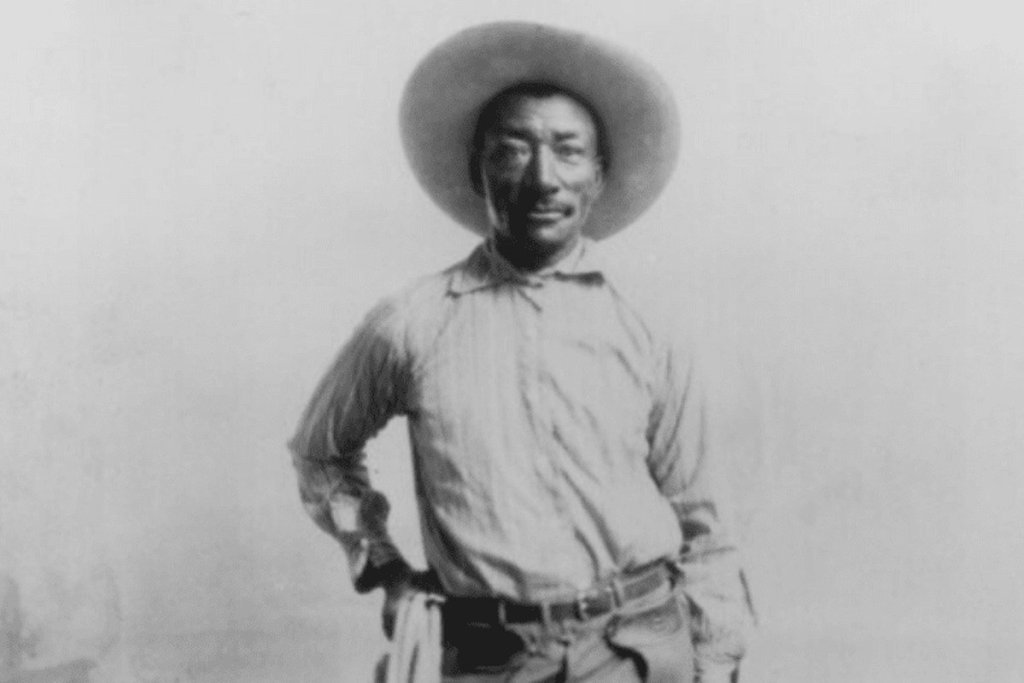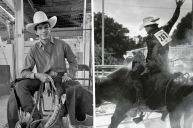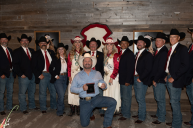When eight seconds feels like an eternity that could make or break you, it takes a special kind of talent to survive in the world of pro rodeo riders. It takes a fearless heart, an adventurous spirit, and the acknowledgment that your life and career hangs on a 2,000-pound bucking animal. Sometimes breaking multiple bones is all in a day's work. From barrel racing to steer wrestling, team roping and tie-down roping, there's a lot more that goes into the sport than you might realize.
Videos by Wide Open Country
All of that talent competes for the highest world standings at the Wrangler National Finals Rodeo (NFR). There is also a Women's Professional Rodeo Association (WPRA) in the United States.
We've rounded up 13 of some of the most legendary rodeo riders in rodeo history.
Larry Mahan
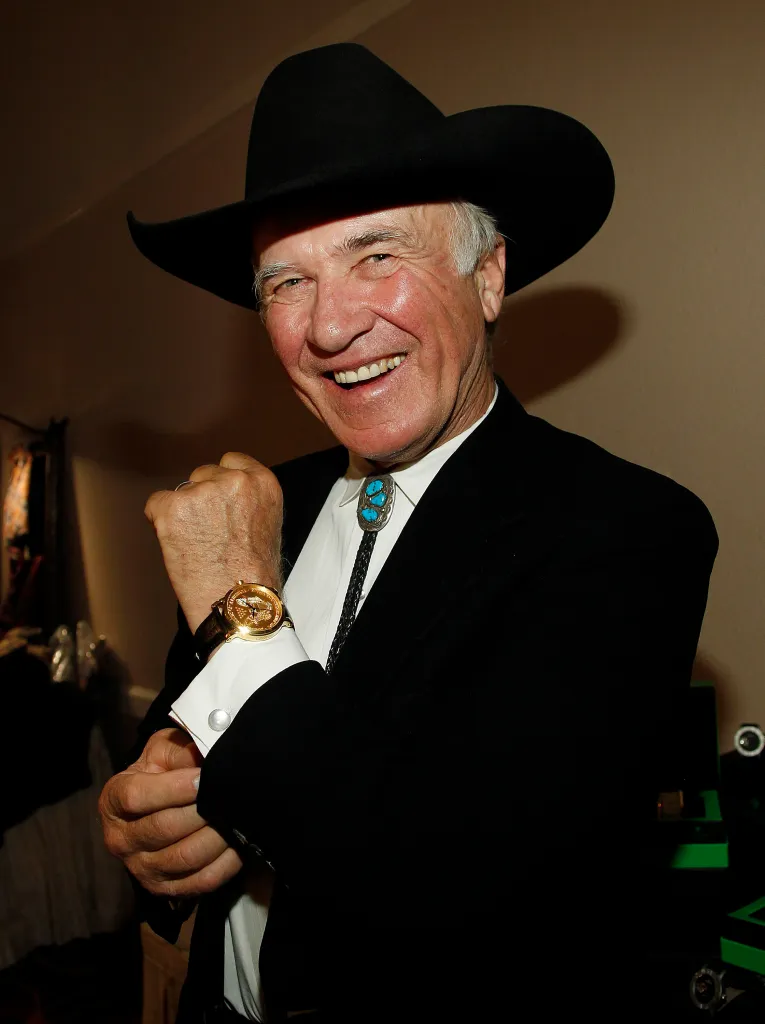
LAS VEGAS - DECEMBER 5: Larry Mahan attends the Backstage Creations celebrity retreat during the American Country Awards at the MGM Grand Garden Arena on Dec. 5, 2011 in Las Vegas, Nevada. (Photo by Isaac Brekken/WireImage)
Larry Mahan started on the rodeo circuit at the age of 14. After winning World All-Around Rodeo Champion for five consecutive years from 1966 to 1970, he became the subject of the Academy Award-winning documentary The Great American Cowboy. The film focused on Mahan's competitive rivalry with fellow cowboy Phil Lyne.
In addition to his bull riding prowess, Mahan also helped shape the rodeo cowboy image when he established the western wear line, the Larry Mahan Collection.
Mahan also released a 1976 album, Larry Mahan, King of the Rodeo.
Chris LeDoux
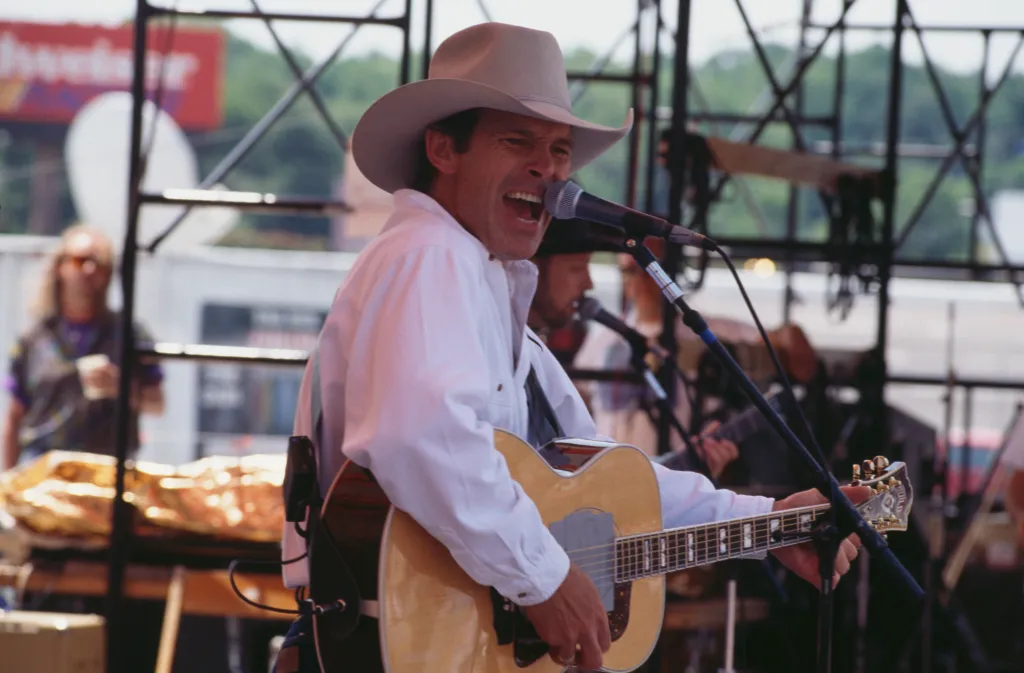
American country music singer-songwriter Chris LeDoux performing in Nashville, Tennessee, 1993. (Photo by Beth Gwinn/Redferns/Getty Images)"n
Is there a better lyric about rodeo life than "a worn-out tape of Chris LeDoux, lonely women, and bad booze seem to be the only friends I've left at all"? Long before Garth Brooks immortalized his friend LeDoux in his song "Much Too Young (To Feel This Damn Old)," LeDoux was revered in the rodeo community.
As a boy, LeDoux competed in junior rodeos across Texas. He became a professional rodeo cowboy in 1970, and six years later, he won the world bareback riding championship at the National Finals Rodeo in Oklahoma City. LeDoux began composing songs about the rodeo life. He developed a devoted following through selling records out of the back of his pickup truck.
LeDoux's background as a rodeo champion paired with great songs and stage presence made him a natural country music star. His duet with Brooks, "Watcha Gonna Do With A Cowboy," reached the Top 10 on the country charts.
LeDoux died from a rare form of liver cancer in 2005.
Charles Sampson
Inspired by famous trailblazing Black rodeo hero and bull rider Myrtis Dightman, Sampson began competing in rodeos. In 1982, Sampson became the first Black cowboy to win a world championship in professional rodeo.
The world champion bull rider was inducted into the ProRodeo Hall of Fame in 1996. He's also a member of the Bull Riding Hall of Fame and the Rodeo Hall of Fame of the National Cowboy and Western Heritage Museum.
Casey Tibbs
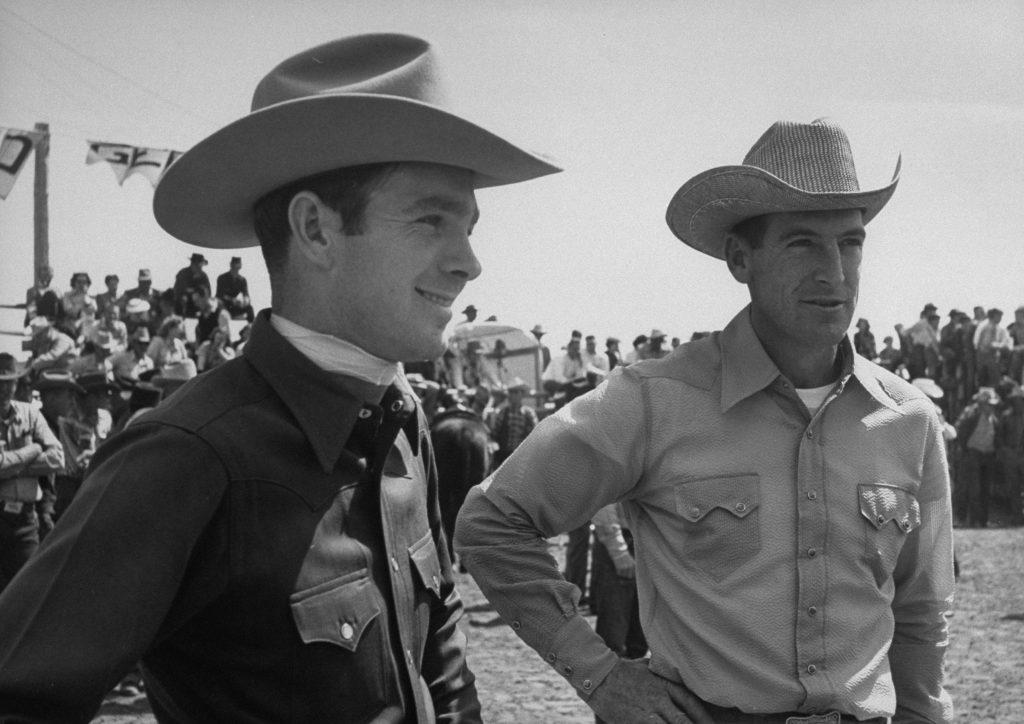
Rodeo champions Bill Linderman (R) and Casey Tibbs watching the rodeo. (Photo by Carl Iwasaki/Getty Images)
Saddle and bareback bronc rider Casey Tibbs won the title of World All-Around Rodeo Champion twice, in 1951 and 1955. Tibbs' endearing personality and flashy style helped bring the rodeo into American pop culture at large. He was born to be a star, whether in the rodeo arena or on the silver screen. Tibbs parlayed his successful rodeo career into a career in film, working as a stuntman, livestock wrangler and actor in movies and television in the 1950s, 60s, and 70s. He was also honored in an Ian Tyson song.
Bill Pickett
The legendary Bill Pickett changed rodeo forever by inventing what became known as steer wrestling. During his lifetime, Pickett traveled the world performing with the Miller Brothers' 101 Wild Ranch Show along with Buffalo Bill, Will Rogers, Tom Mix and Lucille Mulhall. He posthumously became the first Black cowboy honored in the National Rodeo Hall of Fame.
Today, Bill Pickett continues to be honored as the namesake of the Bill Pickett Rodeo.
Jim Shoulders
Called "the Babe Ruth of rodeo cowboys", Jim Shoulders was a rough stock rider who won 16 world championships in the 1940s and 50s.
Without the work of Jim Shoulders, cowboys today might look very different. Shoulders helped test and design Wrangler's 13MZW Cowboy Cut jeans, a look that has become synonymous with the true blue cowboy.
Tad Lucas
Considered the First Lady of Rodeo, Tad Lucas changed the rodeo world forever with her showstopping trick riding. Lucas became a worldwide sensation in the 1920s and 30s, traveling with a Wild West Show-style rodeo company. She was influential in keeping women's rodeo programs alive, helping to establish the Girl's Rodeo Association in 1948. Lucas is the only woman to be inducted into the National Rodeo Hall of Fame, Pro Rodeo Hall of Fame and the National Cowgirl Hall of Fame.
Jesse Stahl
Born in 1879, Stahl was an incredible bronc rider. According to the National Cowboy Museum, Stahl invented "hoolihanding," a technique where a bull was wrestled to the ground after jumping onto its back from a horse. Though historians estimate that one in four cowboys were Black, during his time, Stahl was one of the few Black cowboys to compete in the early days of the rodeo. The National Cowboy Museum explains that while Stahl continuously placed "at or near the top at all of the major rodeos-New York, Pendleton, Salinas," he was usually under-ranked by judges because of his race.
"He was a great bronc rider, but he is most remembered for winning first, but getting third," a contemporary said of Stahl. (Quote via the National Cowboy Museum.)
Ty Murray
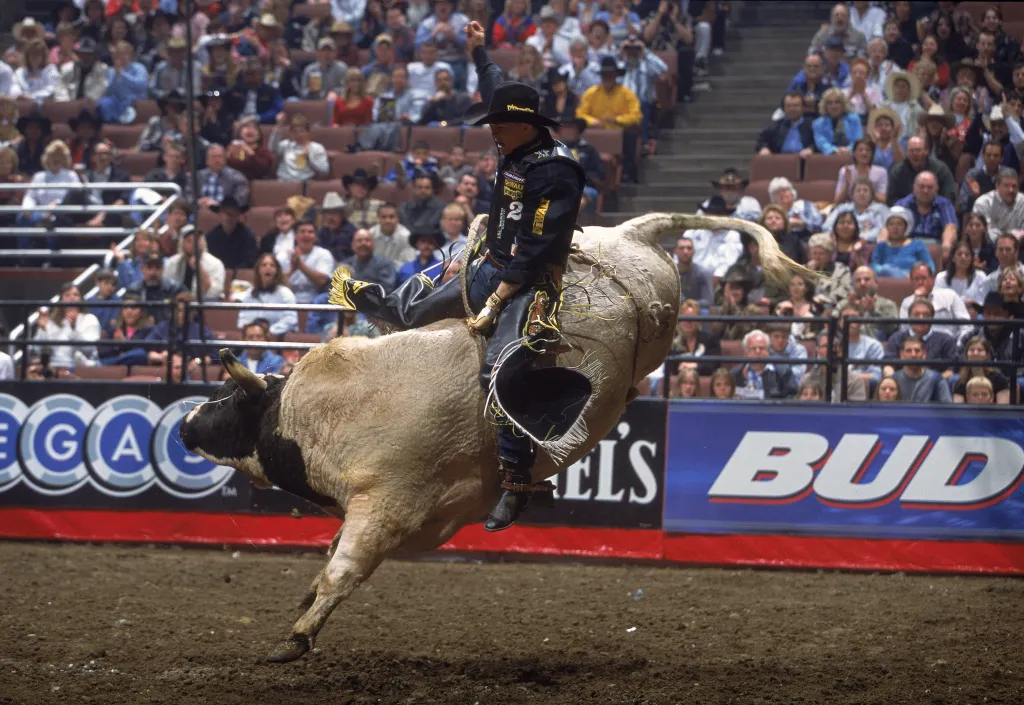
17 Feb 2001: Ty Murray #2 rides the bull during the Pro Bull Riders Bud Light Cup at the Anaheim Pond in Anaheim, California.Mandatory Credit: Donald Miralle /Allsport
Ty Murray lives up to the nickname, "King of the Cowboys." The Phoenix, Arizona native, is a nine-time World Champion rodeo cowboy. He's competed in the bareback riding, saddle bronc riding and bull riding events. Murray has become one of the most recognizable faces in professional rodeo, working as a commentator for Professional Bull Riding events on CBS Sports. He was even well-known for his marriage to singer-songwriter Jewel from 2008-2014. He was alluded to in her song, "Stephenville, TX," which was most likely inspired by his Stephenville ranch.
In 2009, Murray competed in the eighth season of Dancing With the Stars, making it to the 10th-week semi-finals before being eliminated. He's been an ongoing board member of the PBR since 2014. He proposed to his now wife Paige Duke at Hope Lake, Colorado, and they married in North Carolina in 2017.
Myrtis Dightman
In 1967, Myrtis Dightman became the first African-American to compete at the National Finals Rodeo, becoming known as the Jackie Robinson of rodeo.
"A lot of folks thought rodeo was a white man's game," Dightman said (quote via Texas Monthly.) "But those bulls don't care if you're white or black. You could be green, for all it matters. They just don't want you on their backs."
Texas Monthly reports that after realizing that none of the trail riders scheduled to participate in the kickoff parade for the Houston Fat Stock Show (what would become the Houston Livestock Show and Rodeo) were Black, Dightman, along with bull rider James Francies Jr. and veterinary professor Alfred Poindexter, co-founded the Prairie View Trail Riders Association.
Born and raised outside Crockett, Texas, Dightman started ranching from a young age. Today, a statue of Dightman stands in Crockett.
Dightman is a member of the ProRodeo Hall of Fame, Bull Riding Hall of Fame, Texas Rodeo Cowboy Hall of Fame and Texas Cowboy Hall of Fame.
Tuff Hedeman
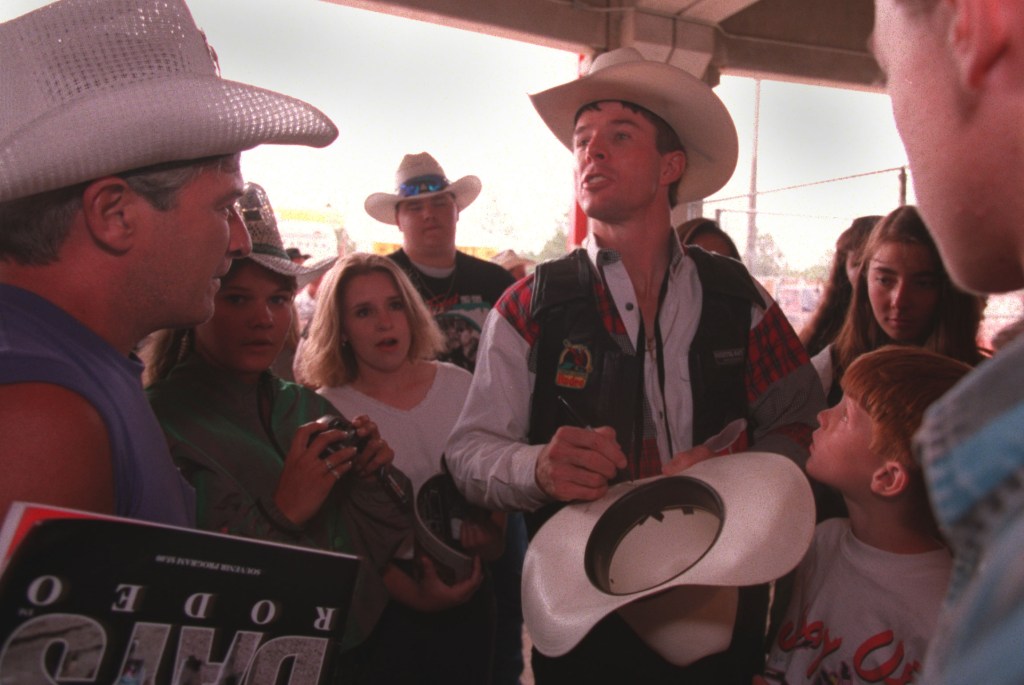
Champion bull rider Tuff Hedeman signs autographs after winning the "Daddy of "Em All" Frontier Days Rodeo in Cheyenne, Wyoming.(Photo By JOEY MCLEISTER/Star Tribune via Getty Images)
Tuff Hedeman is a three-time Professional Rodeo Cowboys Association (PCRA) champion bull rider. Hedeman is known as being one of only seven riders to have spent eight seconds on the notoriously difficult bull Bodacious. Once, while riding Bodacious during the Professional Bull Riders competition in Las Vegas, Hedeman shattered nearly every bone in his face when he smashed his head against the bull's skull. Two months later, after having reconstructive surgery on his face, Hedeman was back in the arena again.
Hedeman is in the Texas Rodeo Hall of Fame as well as the ProRodeo Hall of Fame.
Fred Whitfield
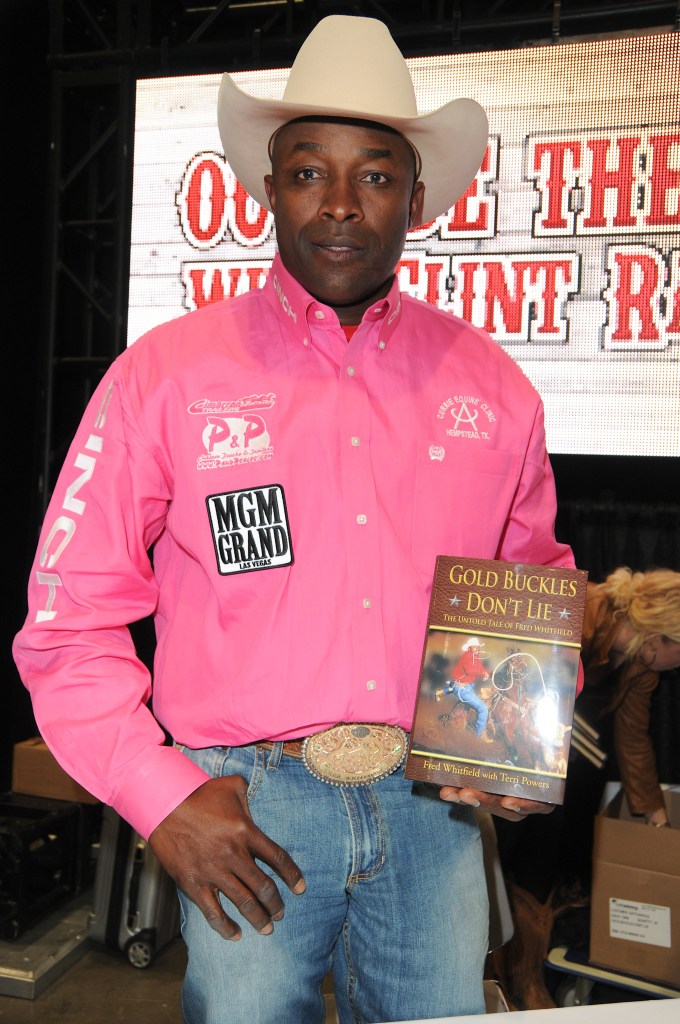
LAS VEGAS, NV - DECEMBER 14: Fred Whitfield appears at Cowboy FanFest during the Wrangler National Finals Rodeo at the on December 14, 2013 in Las Vegas, Nevada. (Photo by Mindy Small/FilmMagic)
Pro rodeo star Fred Whitfield specialized in tie-down roping and won eight Professional Rodeo Cowboys Association (PRCA) world championships and three National Finals Rodeo (NFR) aggregate titles.
The Texan was elected to the ProRodeo Hall of Fame in 2004. He's also a member of the Texas Cowboy Hall of Fame, Texas Rodeo Cowboy Hall of Fame, Cheyenne Frontier Days Hall of Fame and National Multicultural Western Heritage Museum and Hall of Fame.
In 2013, Whitfield released his autobiography Gold Buckles Don't Lie.
Lane Frost
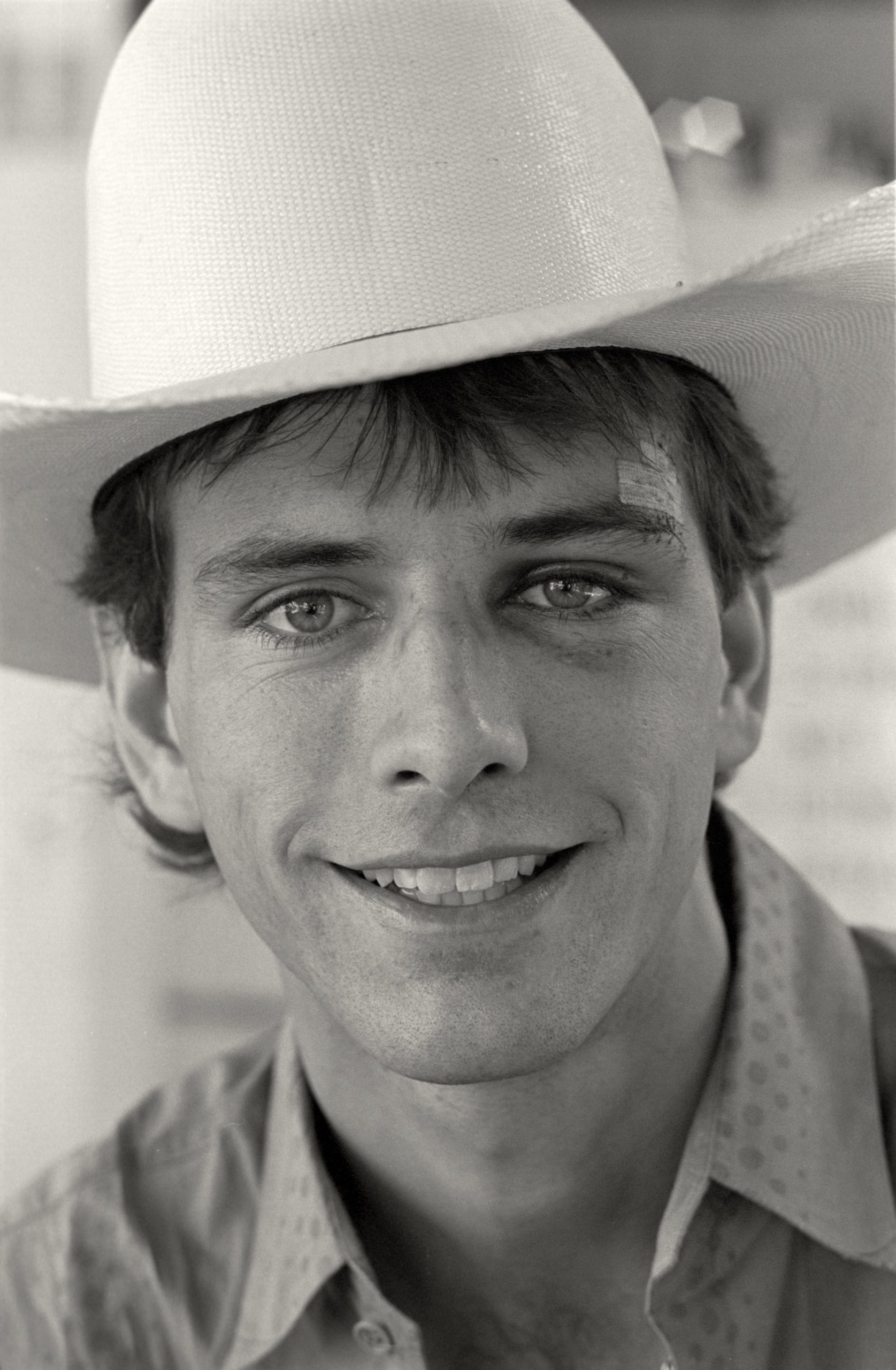
CHEYENNE, WY - JULY 1987: Professional rodeo bull rider Lane Frost headshot taken at the Cheyenne Frontier Days Arena during the Cheyenne Frontier Days rodeo on July 1987 in Cheyenne, Wyoming. (Photo by Mark Junge/Getty Images)
Lane Frost was already a rodeo icon at the age of 25. In 1987, he won the PCRA bull riding championship. The following year, he rode Red Rock, a bull that no man could ride--until Frost. Among cowboys and fans, Frost became known as The King.
Even non-rodeo fans are probably familiar with Frost from the movie 8 Seconds, which followed his career and untimely death. Frost met a tragic end during the 1989 Cheyenne Frontier Days. After riding a bull named K. Walsh (also known as "Takin' Care of Business") for a full eight seconds, Frost was pummeled by the bull, breaking at least two of his ribs. Frost suffered from a punctured artery and died shortly after.
Lane Frost is still remembered and honored within the rodeo community and beyond. Aaron Watson's 2012 single "July in Cheyenne" memorializes Frost and his legacy.
